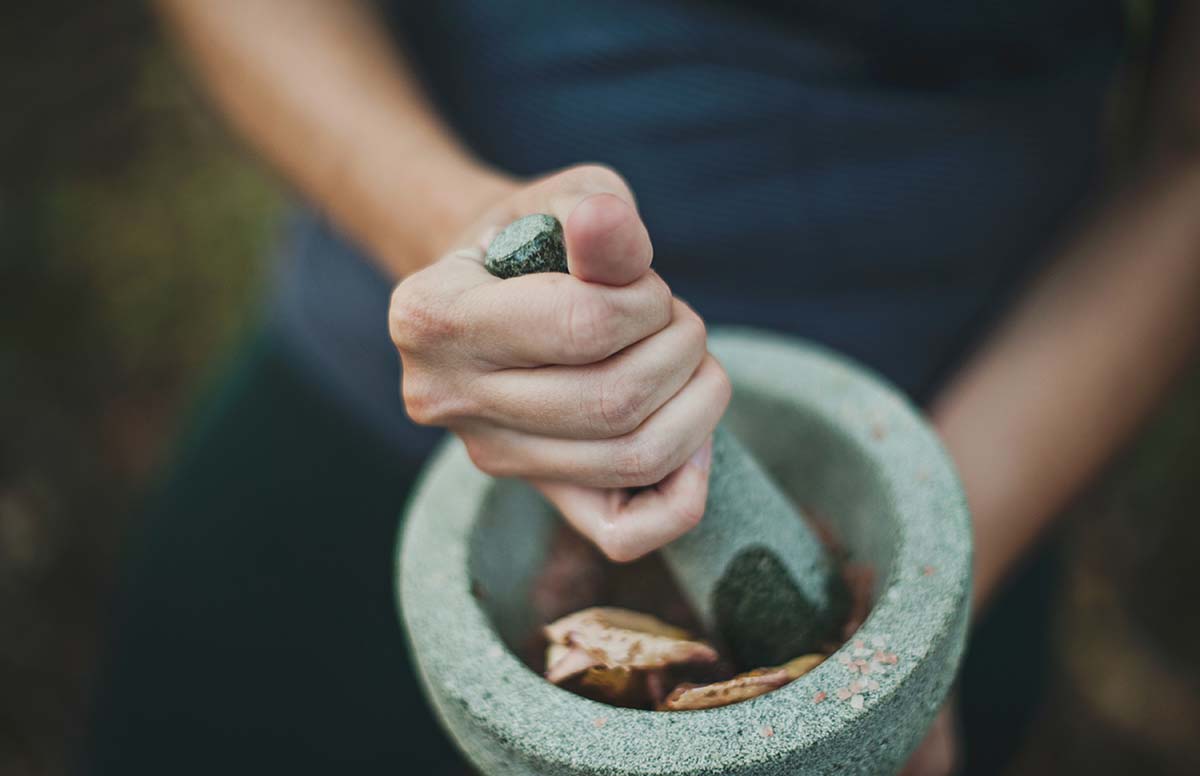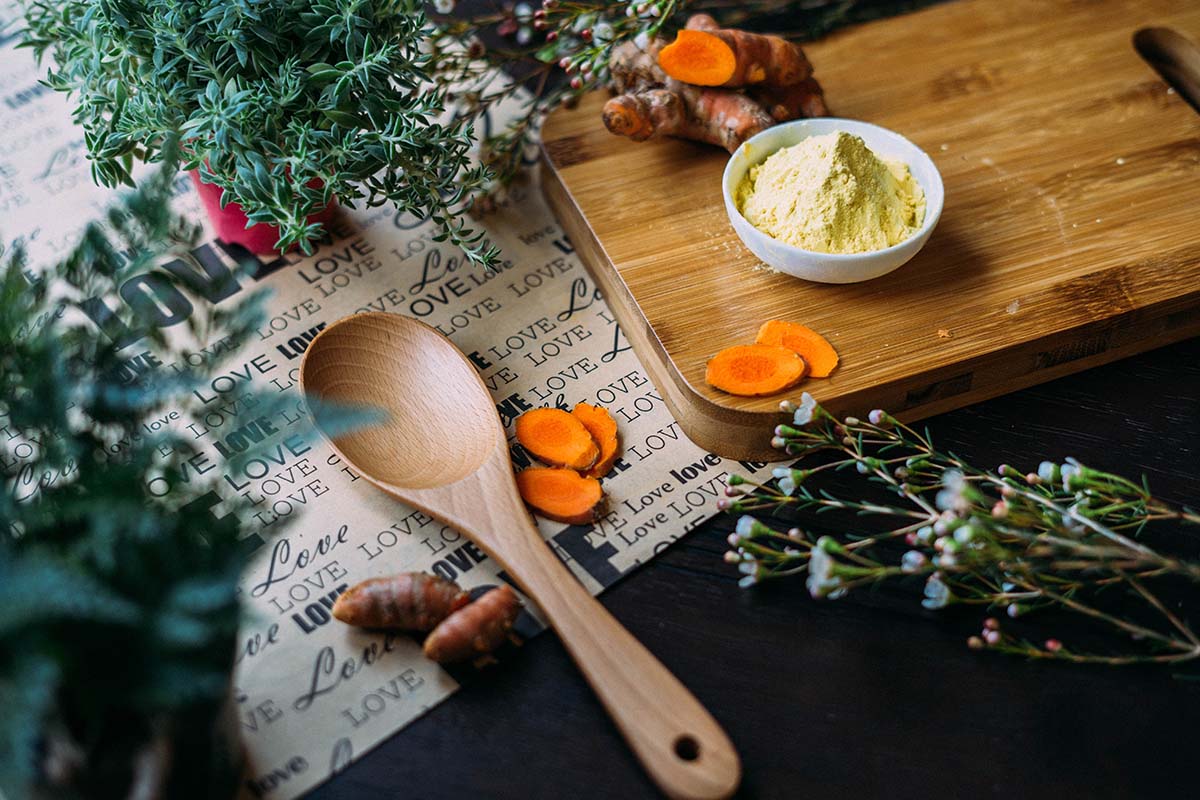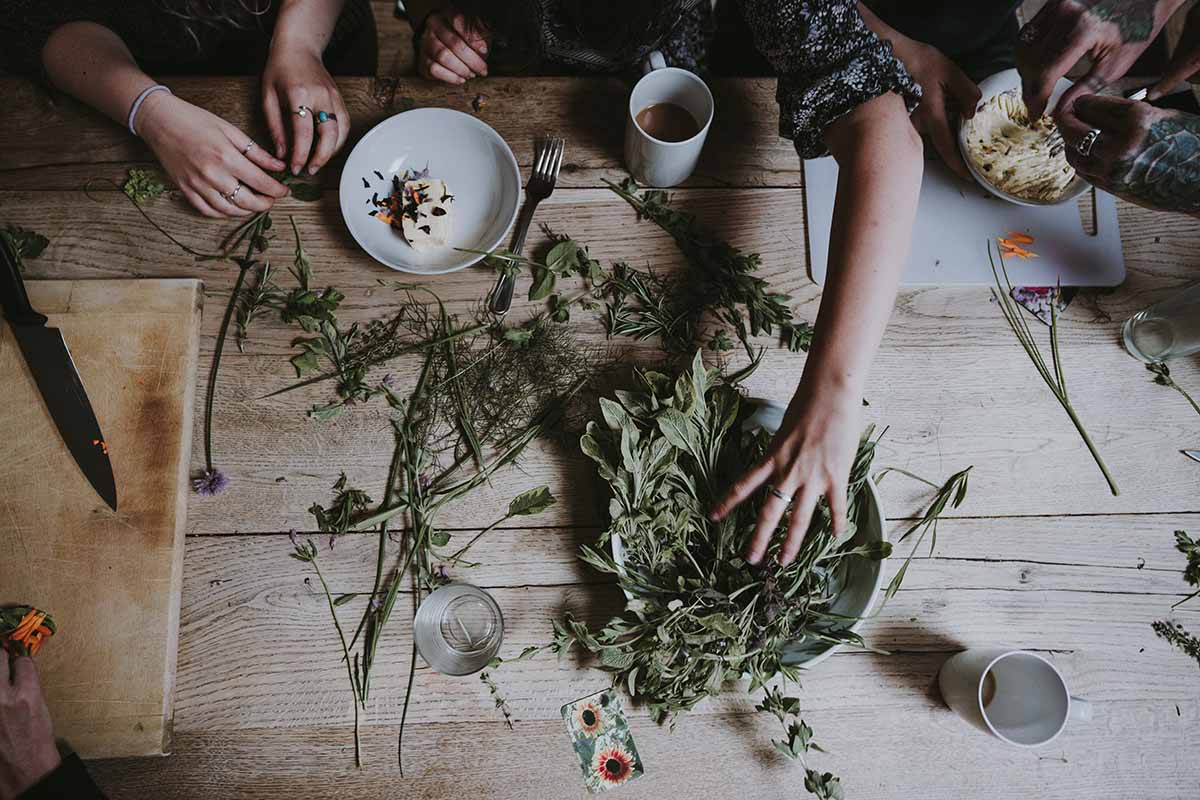Herbs and Spices in Ayurveda: Top 7 Effective Plants
Ayurveda is an ancient (several thousand years) medical systems. Its main task is to balance patients’ bodies, thoughts, and emotions, thus curing them of diseases and improving their quality of life. Herbs and spices play an important role in getting rid of harmful substances in the body that can cause diseases. Several hundred different types of plants are used for treatment. This article contains the top seven, which are the most common.
Benefits of Herbs According to Ayurveda
For thousands of years, herbs and spices have been utilized in Ayurvedic medicine to treat various ailments. It is believed that with their help, you can balance your inner state. Herbal therapy has many benefits:
- provides optimal nutrition to all body tissues;
- boosts intelligence, memory, and cognitive abilities;
- increases the reproductive system and stimulates vitality;
- balances doshas and relieves diseases characteristic of the dominant type;
- improves overall well-being and leads to longevity;
- helps the immune system defend itself against diseases and viruses;
- allows you to treat both the underlying disease and related health problems.
There are many different combinations of herbs, which are selected by the experts of Ayurvedic medicine from Alveda, depending on the individual needs of a patient.
Top 7 Herbs For Your Health
In the Ayurvedic system, herbal treatment is given great attention. It is believed that each plant has certain qualities in terms of influence on the body, taste, aftertaste, and the warming or cooling effect. Let’s take a closer look at the seven main herbs and their benefits.
Amla
Amla (or Phyllanthus Emblica or Indian gooseberry) has powerful antioxidant and anti-aging properties. One amla fruit contains several times more ascorbic acid than a whole lemon. Thanks to it, the plant is used to strengthen the immune system.
Amla helps to balance all three doshas, but it is especially good for Pitta. The herb contributes to treating diseases characteristic of this body type: problems with the stomach, liver, skin, eyes, blood, etc. Amla has a sweet, spicy, and at the same time sour taste with a sweet aftertaste and a cooling effect.
Arjuna
In medical practices, the bark, leaves, and fruits of the Arjuna or Arjun tree are used. Its bark contains tannins, calcium, magnesium, saponin, zinc, and copper. The leaves provide a tonic impact. It is considered a robust cure for most heart diseases. It normalizes your blood circulation, improves metabolic processes in the myocardium, makes the blood thinner, and stabilizes the state after a heart attack.
It is believed that Arjuna balances Vata, reduces Pitta, and at the same time has a neutral impact on Kapha. The plant has an astringent and sweet taste with a spicy aftertaste and provides a cooling effect.
Ashwagandha
This small shrub is also called Withania Somnifera. It is primarily considered an effective adaptogen. With it, you can deal with stress, improve the state of the nervous system, and normalize sleep. The herb generally has a beneficial impact on the immune system and, in some versions, increases male fertility.
It has a bitter, astringent, and sweet taste, as well as a sweet aftertaste. It gives a cooling effect. The plant reduces Vata and Kapha.
Brahmi
Brahmi or Centella Asiatica is primarily known for its calming effect on the nervous system. Drugs based on it normalize memory, intelligence, sleep, concentration, and other properties of the brain. In addition to fighting mental issues such as Attention Deficit Disorder, it is also used to improve brain blood circulation and nutrition.
Brahmi also has a positive impact on blood circulation overall and therefore is often utilized in combination with Arjuna. These two plants enhance each other’s influence. Brahmi is beneficial for any dosha, but especially Vata and Pitta. It has a bitter and astringent taste with a sweet aftertaste and provides a cooling effect.
Herbs and spices in Ayurveda: Turmeric
Turmeric is one of the most common spices. It is used in medicine and in religious rituals, cooking, and cosmetology. It enhances digestion and liver function, improves blood quality, and helps your body deal with inflammation and bleeding. Also, its effectiveness in improving skin conditions has been proven by many studies. That is why this spice is added to the composition of cosmetic products.
Turmeric is beneficial for Kapha and Pitta (despite its warming effect). It should be used with caution for those with Vata body type due to the bitter taste. The aftertaste of this plant is spicy.
Neem
Like turmeric, Neem has a very wide range of uses. It stops bleeding, heals cuts, has a beneficial influence on the liver, etc. It is utilized as an antipyretic, antimicrobial, and anti-inflammatory agent in medicine. When used to treat colds and flu, it gives a faster recovery. Also, Neem oil has a positive effect on the skin and treats inflammation, therefore is often found in cosmetics.
The main purpose of this herb in Ayurveda is to balance Pitta. However, it should be used with caution when Vata dosha is dominant. It has a bitter and astringent taste with a spicy aftertaste and a cooling effect.
Licorice Root
Glycyrrhiza glabra (or, more familiar to many, Licorice Root) has a powerful anti-inflammatory effect and excellent protection against colds. It is helpful to take it to strengthen the immune system. It also positively impacts the brains, nourishes them, and rejuvenates them. It can be utilized to treat peptic ulcers, erosion, caries, gastritis, heartburn, and some skin diseases.
Licorice root reduces Vata and Pitta, but it can increase Kapha in large quantities. Its taste and aftertaste are sweet; the plant has a cooling effect.
Herbs and spices in Ayurveda: Use Ayurvedic Herbs and Spices Wisely
All these herbs have a substantial and visible effect on the body. Although, in general, products and drugs based on the listed plants and spices are safe to use, it is essential to know their dosage and compatibility with each other. Before starting their application, it is strongly recommended to consult with a specialist in Ayurvedic medicine.




















